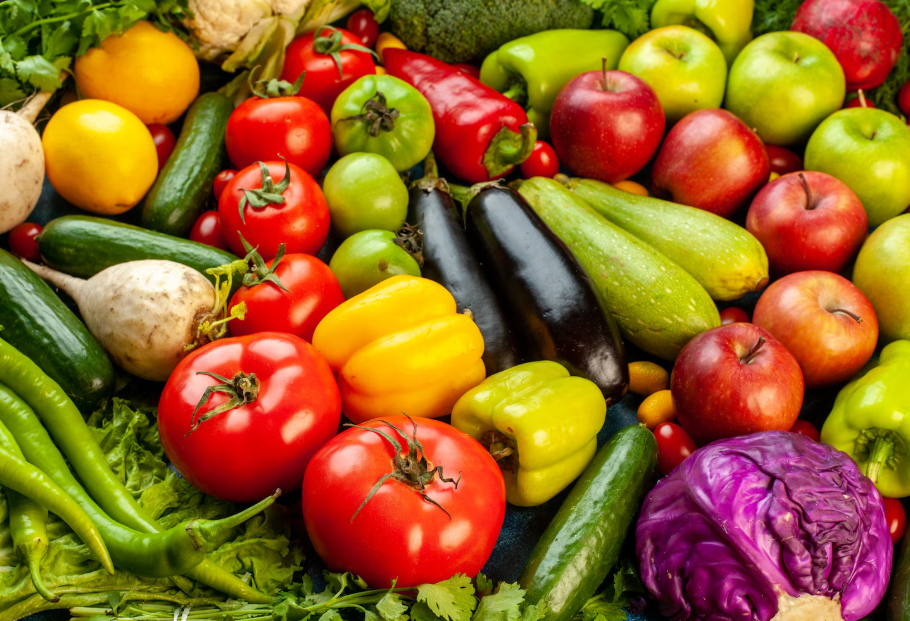India is the third-largest biotechnology market in the Asia-Pacific region and one of the top 12 globally, commanding around 3% of the global biotechnology market. It is also the world’s second-largest producer of BT cotton and the third-largest producer of the recombinant Hepatitis B vaccine. The biotechnology sector in India is divided into five key segments: biopharmaceuticals, bio-services, bio-agriculture, bio-industrial, and bio-IT.
India’s bioeconomy has seen remarkable expansion, growing from US$ 10 billion in 2014 to US$ 140 billion by 2024, and is projected to reach US$ 300 billion by 2030. The vaccine industry alone is expected to grow from US$ 2 billion to US$ 5 billion as both domestic and global pharmaceutical companies increasingly include vaccines in their portfolios. By 2025, the Indian vaccination market is projected to be worth Rs. 252 billion (US$ 3.04 billion). A landmark milestone was achieved in July 2022 when India’s first indigenously developed quadrivalent Human Papilloma Virus (qHPV) vaccine against cervical cancer, supported by DBT and BIRAC, received market authorization from the DCGI.
India’s biotechnology market size was valued at approximately US$ 37.1 billion in 2025 with an expected compound annual growth rate (CAGR) of 13.09% during 2026-34, potentially reaching US$ 112.2 billion by 2034. Growth drivers include rising demand for personalized medicine, chronic disease treatments, and integration of IT with biotech for precision medicine.
The sector’s growth is underpinned by strong manufacturing capabilities. India has 665 FDA-approved plants in the US, accounts for 44% of global abbreviated new drug applications (ANDA), and hosts more than 1,400 WHO-compliant manufacturing plants. As of October 2024, the Department of Biotechnology was managing 1,547 ongoing projects, showcasing the government’s deep engagement in fostering innovation.
As of September 2025, India has around 11,000 biotech startups, up significantly from 8,531 in 2023, indicating thriving innovation across diverse biotech segments including biopharmaceuticals. In bio-manufacturing, the country now ranks third in the Asia-Pacific region and 12th worldwide. Biofoundries and biotech clusters are further strengthening the ecosystem, enabling startups to translate ideas into impactful ventures with sustained government and industry support.
India’s cost-effective research environment, strong biotech talent pool, and public-private partnerships as key drivers for the country’s emergence as a trusted global leader in affordable precision healthcare and biotech innovation.
India’s pharmaceutical exports are also driving global leadership. Exports grew 9.67% in FY24 to US$ 27.9 billion and further rose to US$ 30.5 billion in FY25, marking a 9.3% year-on-year increase. The United States remains the largest market, accounting for over 31% of exports, followed by the UK and the Netherlands. Looking ahead, pharma exports are projected to nearly double to US$ 65 billion by 2030.
India’s cell and gene therapy market is projected to reach US$ 1.65 billion by 2027, growing robustly. Bharat Biotech, Syngene, Laurus Labs, and Aragen are entering next-gen medicine manufacturing, including approvals for two indigenous CAR-T therapies, expected to make advanced cancer and genetic treatments more accessible and affordable.
India is also making progress in emerging areas such as stem cell therapy, which is expected to grow at a CAGR of over 13% between 2022 and 2027, supported by government investment, private sector participation, and robust academic and research infrastructure.
The Telangana government has secured a significant investment of Rs. 2,150 crore (US$ 251.55) in the biotech, technology, and fintech sectors, officials said on June 10, 2025, highlighting the state's growing appeal to venture capitalists and entrepreneurs.
India’s bioeconomy, backed by Bio-E3 and Bio-RIDE policies, has grown 16-fold in the past decade to Rs. 14,16,237 crore (US$ 165.7 billion) in 2024 and is projected to touch Rs. 25,64,100 crore (US$ 300 billion) by 2030, reinforcing its role as a global innovation and growth driver.
India also has a strong start-up ecosystem, originating from gradual improvements in the ease of doing business, proof-of-concept funds for start-ups, and favourable government policies. BIRAC, a public sector undertaking of DBT, has partnered with innovative foundations and universities to focus on ‘Make in India’ and ‘Startup India’ programmes.
Shoolini University highlighted its contribution with infrastructure supporting 104+ advanced laboratories and 11 Centres of Excellence in biotech-related fields, supported by government grants to boost innovation and research facility quality.
Department for Promotion of Industry and Internal Trade (DPIIT) signed an MoU with Thermo Fisher Scientific to support over 500 biotech startups in the next three years through advisory, technology access, mentorship, and investor connect.
The government envisions creating biofoundries, Bio AI centres, and thematic hubs focused on bio-based chemicals, smart proteins, and carbon capture as part of policy support to foster biomanufacturing and innovation.
Department for Promotion of Industry and Internal Trade (DPIIT) signed an MoU with Thermo Fisher Scientific to support over 500 biotech startups in the next three years through advisory, technology access, mentorship, and investor connect.
The Union Budget 2025-26 strengthens India’s biotechnology sector with increased funding for the Department of Biotechnology (DBT) to support R&D, biomanufacturing, and startups. It allocates Rs. 20,000 crore (US$ 2.30 billion) for private research, launches the National Manufacturing Mission, and promotes AI-driven biotech, precision farming, biofuels, and genetic research, driving innovation and sustainability.
In January 2025, Unicorn India Ventures invested Rs. 3 crore (US$ 351,000) in Bhubaneswar-based biotech startup Exsure to advance its non-clinical study and global exfclpansion plans.
In March 2024, Union Minister of Science & Technology, Dr. Jitendra Singh, inaugurated the pioneering "National Speed Breeding Crop Facility" at the National Agri-Food Biotechnology Institute (NABI) in Mohali.
In January 2024, Union Minister of State (Independent Charge) Science & Technology, Dr Jitendra Singh inauguration of Biotech Startups Expo on “Emerging Startup Trends in North India at Biotech Park, Kathua.
In December 2023, the Gujarat Chief Minister also inaugurated the ‘Start-Up Product Launch’ which included innovative products developed by startups such as Bioscan, SynerSense, Iota, and STRUmed Solutions during the 10th Vibrant Gujarat Global Summit. The Pre-Summit also witnessed the signing of a Memorandum of Understanding (MoU) between Indus Setu Global Foundation and Gujarat State Biotechnology Mission.
In November 2023, Bharat Biotech signs MoU with University of Sydney Infectious Diseases Institute (Sydney ID) to collaborate on vaccine research initiatives and strengthen academic-industry partnerships.
In October 2023, the Uttarakhand government signed several MoUs worth Rs. 5,450 crore (US$ 653.97 million) with industrial bodies in Dubai.
In October 2023, the Uttar Pradesh government is planning to establish a Biotech Park in Pilibhit.
In August 2023, CSIR- National Institute of Science Communication and Policy Research (NIScPR) published a special issue of the Indian Journal of Biochemistry and Biophysics (IJBB) on Biological Electron Microscopy and Nanobiotechnology.
The Department of Biotechnology (DBT) of the Ministry of Science and Technology in India, and UNESCO-TWAS established a fellowship programme for foreign scholars from developing countries who wish to pursue research towards PhD/post-doctoral research in biotechnology.
The National Biotechnology Development Strategy 2020-25 provides the government with a platform to strengthen skill development, resource and innovation converging into one strong ecosystem for knowledge sharing.
In December 2023, IPL Biologicals signed a MoU with the Gujarat government to establish a Rs. 400 crore (US$ 48.1 million) bio-fertilizer and bio-pesticide facility in the state.
In August 2023, the Department of Biotechnology (DBT) and the United States-National Science Foundation (US-NSF) announced to build bilateral collaborations between India and the USA through this Implementation Arrangement.
In August 2023, the Technology Development Board (TDB) and the Department of Science & Technology (DST) partnered with Chemlife Innovations for the Innovative Bio-Trace Minerals Project to enhance livestock productivity, optimize feed, and fodder resources and infuse technology into livestock management.
In July 2023, 15 companies sign MoUs worth Rs. 2,000 crore (US$ 239.99 million), in a day, for investments in biotech sector.
In July 2023, Aurigene Pharmaceutical Services to set up a US$ 40 million facility in Hyderabad.
In July 2023, India and Argentina agreed to a bilateral exchange of young researchers and Startups, particularly in the field of Biotechnology and Agriculture.
In July 2023, Biocon Biologics launched a biosimilar version of AbbVie's top selling biologic Humira (generically called adalimumab) in the US market under the brand name HULIO.
In July 2023, the National Biopharma Mission is supporting 101 projects including more than 150 organizations and 30 MSMEs. It has increased employment opportunities and engaged 1,065 manpower including 304 scientists/ researchers.
In April 2023, under the Biotech-KISAN scheme, 160,000 farmers received benefits during the last one-year (January-December 2022).
In May 2023, India and Israel will strengthen their connection in areas such as innovation and start-ups, ushering in a new period of deeper bilateral cooperation.
Union Minister Dr. Jitendra Singh inaugurates the Northeast's first International Biotech Conclave.
In February 2023, Serum Institute of India announced centre of excellence in Hyderabad to tackle future pandemics.
In February 2023, Bristol-Myers Squibb intends to invest Rs. 800 crore (US$ 96.69 million) in establishing a cutting-edge centre in Telegana to boost its global medical development and IT capabilities.
India has become the third-largest destination for conducting clinical trials globally as of 2024, growing at a CAGR of 80% from 2019. Around 18,000 clinical trials were registered in India in 2024 alone, with commitments from global companies for drug development and innovation. The National Biopharma Mission is strengthening clinical trial capacity and enabling hospital-based trials in multiple specialties.
The New Drugs and Clinical Trials Rules, 2019 were developed by the government to create a streamlined legal framework for the biopharmaceutical market to reduce costs, approval timelines and cut bureaucratic red tape. India is among the preferred destinations for clinical trials owing to a large patient pool, transformation of the healthcare market, well-educated physicians, and cost competitiveness.
According to Parexel, India is ready to step in as an alternative site for early-stage clinical trials, the US-based company plans to boost its headcount in India by more than 2,000 over the next three to five years, from about 6,000 currently.
Biotechnology parks and incubators are established across the country by the Department of Biotechnology (DBT), under the Ministry of Science and Technology, to translate research into products and services by providing necessary infrastructure support. These biotechnology parks offer facilities to scientists, and small and medium-sized enterprises (SMEs) for technology incubation, technology demonstration and pilot plant studies to accelerate the commercial development of biotechnology. The government, at present, supports nine biotechnology parks in various states, with the bulk being in the southern region. The Department of Biotechnology (DBT) has supported 11 Biotechnology Parks in various States. The Department of Biotechnology (DBT), Government of India, is driving a transformative shift in North East India (NER) by integrating biotechnology with biodiversity conservation and economic growth. Since 2010, DBT has allocated 10% of its annual budget to specialized programs in NER, fostering research, education, and entrepreneurship.
The success of the Indian biotechnology industry will be shaped by the rise of start-ups and the strengthening of research, supported by a growing network of incubators. With its multidisciplinary approach, the sector is well-positioned to deliver transformative solutions across healthcare, agriculture, environment, energy, and industry, reinforcing its role as a key driver of innovation and sustainable growth.














